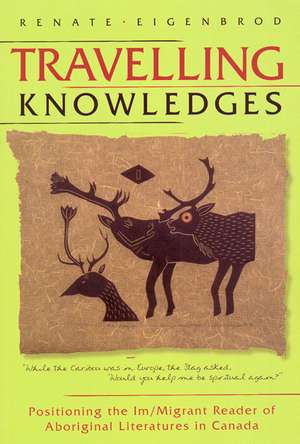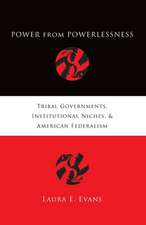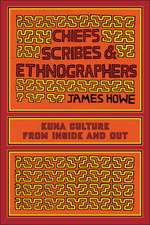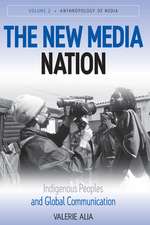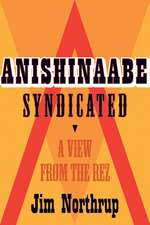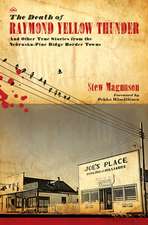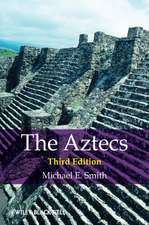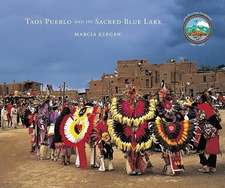Travelling Knowledges: Positioning the Im/Migrant Reader of Aboriginal Literatures in Canada
Autor Renate Eigenbroden Limba Engleză Paperback – 14 mai 2005
In the context of de/colonization, the boundary between an Aboriginal text and the analysis by a non-Aboriginal outsider poses particular challenges often constructed as unbridgeable. Eigenbrod argues that politically correct silence is not the answer and instead does a disservice to the literature that, like all literature, depends on being read, taught, and disseminated in various ways. In Travelling Knowledges, Eigenbrod suggests decolonizing strategies when approaching Aboriginal texts as an outsider and challenges conventional notions of expertise. She concludes that literatures of colonized peoples have to be read ethically, not only without colonial impositions of labels but also with the responsibility to read beyond the text or, in Lee Maracle's words, to become "the architect of great social transformation." Features the works of: Jeannette Armstrong (Okanagan), Louise Halfe (Cree), Margo Kane (Saulteaux/Cree), Maurice Kenny (Mohawk), Thomas King (Cherokee, living in Canada), Emma LaRocque (Cree/Metis), Lee Maracle (Sto:lo/Metis), Ruby Slipperjack (Anishnaabe), Lorne Simon (Miikmaq), Richard Wagamese (Anishnaabe), and Emma Lee Warrior (Peigan)
Preț: 152.37 lei
Nou
Puncte Express: 229
Preț estimativ în valută:
29.16€ • 31.77$ • 24.57£
29.16€ • 31.77$ • 24.57£
Carte disponibilă
Livrare economică 02-16 aprilie
Preluare comenzi: 021 569.72.76
Specificații
ISBN-13: 9780887556814
ISBN-10: 0887556817
Pagini: 274
Dimensiuni: 152 x 229 x 20 mm
Greutate: 0.33 kg
Ediția:New.
Editura: University of Manitoba Press
Colecția University of Manitoba Press
ISBN-10: 0887556817
Pagini: 274
Dimensiuni: 152 x 229 x 20 mm
Greutate: 0.33 kg
Ediția:New.
Editura: University of Manitoba Press
Colecția University of Manitoba Press
Notă biografică
Renate Eigenbrod teaches Aboriginal Literature in the Department of Native Studies at the University of Manitoba and is co-editor of Creating Community: A Roundtable on Canadian Aboriginal Literatures.
Descriere
In Travelling Knowledges, Eigenbrod suggests decolonizing strategies when approaching Aboriginal texts as an outsider and challenges conventional notions of expertise. She concludes that literatures of colonized peoples have to be read ethically, not only without colonial impositions of labels but also with the responsibility to read beyond the text or, in Lee Maracle's words, to become "the architect of great social transformation."
